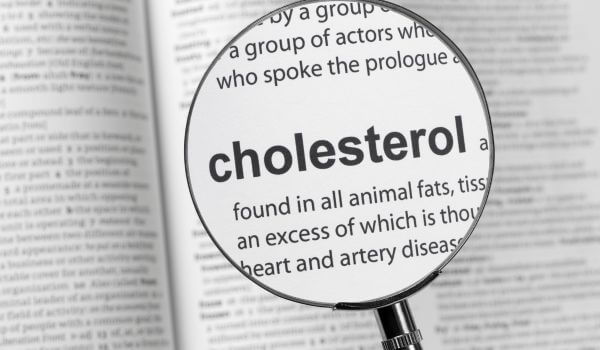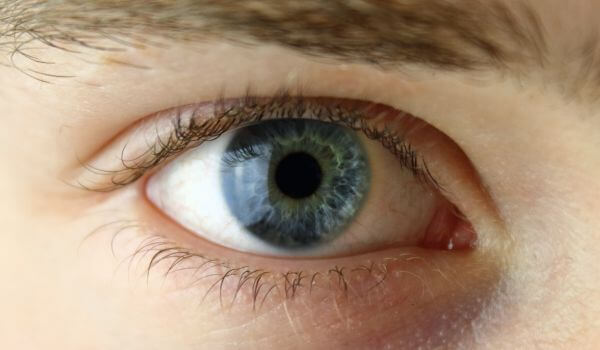 In February 2024, one of my dearest friends gave birth to her second child, a beautiful little fellow named Ari. Months before this momentous occasion, she had found out that Ari would be born with Down syndrome and also with a congenital heart issue that would require surgical intervention within his first few months of life. Being a mother comes with plenty of challenges, but another layer of complexity and stress is added when you know your child will have to face some pretty significant challenges throughout his life. My friend took everything in her stride in a manner that still has me in awe a year later. Little Ari had his surgery, did amazingly well, and is now a happy and healthy one-year-old, but we did speak about her hopes for him and his future, particularly given that he will need support throughout his lifetime in order to thrive.
In February 2024, one of my dearest friends gave birth to her second child, a beautiful little fellow named Ari. Months before this momentous occasion, she had found out that Ari would be born with Down syndrome and also with a congenital heart issue that would require surgical intervention within his first few months of life. Being a mother comes with plenty of challenges, but another layer of complexity and stress is added when you know your child will have to face some pretty significant challenges throughout his life. My friend took everything in her stride in a manner that still has me in awe a year later. Little Ari had his surgery, did amazingly well, and is now a happy and healthy one-year-old, but we did speak about her hopes for him and his future, particularly given that he will need support throughout his lifetime in order to thrive.
World Down Syndrome Day is celebrated every year on March 21. This global awareness day, recognized by the United Nations since 2012, aims to increase understanding and support for individuals with Down syndrome. Like everyone else, people with Down syndrome strive for opportunities such as a strong start in life, access to quality education, fulfilling jobs, a place to call home, and active involvement in their communities. The theme for this year’s World Down Syndrome Day centers on urging governments to improve support systems. One key area of focus is healthcare, specifically increasing funding and support for people like Ari, who was born with Congenital Heart Disease (CHD).
The Congenital Heart Futures Act, first introduced as part of the Affordable Care Act of 2010, provided resources to the Centers for Disease Control and Prevention (CDC) to improve survival rates, reduce disability, and enhance the quality of life for the 2.5 million Americans living with CHD. This act has led to significant progress in supporting those with heart conditions. For the Down syndrome community, this issue is especially critical, as nearly half of all infants born with Down syndrome are affected by congenital heart conditions. The National Down Syndrome Society (NDSS) was one of the prime advocates for the Congenital Heart Futures Reauthorization Act, which was passed into law in November, 2024. Encourage others to join the conversation on social media by posting with the hashtag #ImproveOurSupportSystems.
Why was March 21st Chosen as World Down Syndrome Day?
3/21 was chosen to represent Down syndrome because it is the result of a baby having three copies of the 21st chromosome (trisomy).
How to celebrate World Down Syndrome Day?
This World Down Syndrome Day, I’ll be joining the 9th annual Racing for 3.21 event, and I’d love for you to join in, too! This special event is all about celebrating inclusion, raising awareness, and honoring individuals with Down syndrome. Whether you love running, walking, biking, hiking, or even swimming, you can do 3.21 miles or minutes, on your terms, at any time and any place! Racing for 3.21 is completely virtual, so you can set your own pace and pick the activity that works for you. Once you finish, don’t forget to capture the moment! Snap a photo and share it with the world on social media using #WDSD, #Racingfor321, and #TeamNDSS.
What exactly is Down syndrome?
Trisomy 21, commonly called Down syndrome, is a condition caused by an extra chromosome. Babies usually inherit 23 chromosomes from each parent, making a total of 46. In cases of Down syndrome, however, there are three chromosomes at the 21st position instead of the usual two. This can affect how the body and brain develop compared to someone without the condition. The likelihood of having a baby with Down syndrome increases with the mother’s age, particularly after 35, which is why doctors often recommend prenatal genetic testing for older mothers. However, since younger women have more babies overall, they account for about 80% of births of children with Down syndrome.
Trisomies can also happen at chromosomes 13 and 18, but trisomy 21 is the most common, affecting about 1 in every 691 births. This condition was first discovered in 1866 by a British doctor named John Langdon Down, and it was later named after him.
What health challenges do people with Down syndrome face?
Children with Down syndrome may face an increased risk of certain health issues as they grow. These can include congenital heart conditions, digestive system problems, and challenges with movement or the musculoskeletal system. Spinal conditions like scoliosis, kyphosis, or lordosis may also develop. Other potential concerns include hormone disorders, epilepsy, hearing loss, difficulties with speech (such as speech apraxia), sleep disturbances, and feeding challenges. Developmental issues, such as learning disabilities, mild to moderate intellectual disability, or autism, may also arise. Any of these health concerns can impact a child’s growth, learning, and behavior.
What is congenital heart disease? 
Understanding congenital heart disease starts with knowing how a healthy heart works. The heart has four chambers that work together to keep blood flowing. The top chambers are called the left and right atria, while the bottom chambers are called the left and right ventricles. Each side of the heart has chambers that are connected. The left atrium connects to the left ventricle, and the right atrium connects to the right ventricle. These connections allow blood to move through the heart properly.
The heart and blood vessels work together to keep blood moving in a continuous loop. First, the right side of the heart pumps blood to the lungs, where it gathers oxygen. Then, the left side of the heart sends the oxygen-filled blood out to the rest of the body.
Valves are located between the heart’s chambers, working like doors that open and close. They make sure blood flows in the correct direction through the heart and blood vessels.
Congenital heart disease includes different heart problems caused by the heart not forming correctly before birth. These conditions happen when a baby’s heart develops abnormally during pregnancy. There are many types of congenital heart defects, and some are more likely to occur in people with Down syndrome.
Around half of all babies born with Down syndrome have some form of congenital heart disease. Compared to people without Down syndrome, they are 40 to 50 times more likely to have heart defects, though scientists aren’t sure why this happens so often. There are four main types of congenital heart disease that are more common in people with Down syndrome: Atrioventricular Septal Defects (AVSDs), Ventricular Septal Defects, Patent Ductus Arteriosus, and Tetralogy of Fallot. Each affects the heart in a slightly different manner.
How early can congenital heart disease be diagnosed in Down syndrome?
Detecting heart defects early is important so the baby can get proper medical treatment. Doctors suggest doing an ultrasound in the second trimester of all pregnancies to check the baby’s heart. This test is safe and painless, using sound waves to create images of the baby’s heart. Ultrasounds are very effective at finding heart problems before birth.
When an ultrasound shows a possible heart problem, doctors will do another test called an echocardiogram. This test is similar to a regular ultrasound but focuses on the heart. Echocardiograms can detect over 90% of heart defects in unborn babies.
Doctors can perform a number of early tests at the start of pregnancy to detect Down syndrome and will follow up with more thorough and frequent checks of the baby’s heart if the test is positive. A sample of placental tissue can be taken between 10 and 13 weeks of pregnancy or a combined test of blood and ultrasound a few weeks later into the pregnancy. If there are possible signs of abnormalities, doctors can order a sample of fluid surrounding the baby taken through the abdominal wall (amniocentesis.)
Not all congenital heart problems are found before a baby is born, so even if an ultrasound of the heart was done during pregnancy, babies with Down syndrome should have another heart test after birth to check for any defects.
Does congenital heart disease in Down syndrome always require surgery?

Cases of congenital heart disease that don’t resolve on their own are often treated with surgery. The timing and method of surgery depend on the severity and size of the heart defect. Serious heart defects should be treated within the first six months of a baby’s life. Sometimes, doctors try to treat a heart defect while the baby is still in the womb. This helps the baby’s heart develop more normally before birth. However, this is not common.
Individuals like Ari who have congenital heart disease require ongoing care from medical specialists throughout their lives. If someone with Down syndrome has a congenital heart defect that isn’t treated, they could develop other heart-related problems. But as a mother living paycheck to paycheck, my friend often wonders how help for Ari would come about without the resources and support systems the government has in place. The uncertainty of this is not a feeling any mother should have to deal with, making the message of World Down Syndrome Day particularly close to my heart this year.
Frequently Asked Questions about Down syndrome
Can someone with Down syndrome have a child without the condition?
There is limited data available about the heritability of Down syndrome, since very few children have been born to couples when one or both parents have the condition, as it comes with significant fertility challenges. However, in theory, if one parent has the duplicated chromosome, there’s a 50/50 chance that a baby could be born without Down syndrome. If both parents have duplicated chromosomes, all children will inherit the condition.
Does Down syndrome run in families?
In most cases, having a family member with Down syndrome doesn’t mean others need to worry about their children’s risk. This is because 95% of the time, Down syndrome occurs randomly due to an error during the formation of an egg or sperm. There is nothing in the parents’ genes that causes it.
How long do Down syndrome people live?
A study published in the European Journal of Public Health states that people with Down syndrome have an average life expectancy of nearly 60 years, with some living into their 80s. While their lifespan is generally shorter compared to the general population, many are living longer than ever before.
Can people with Down syndrome have a normal life?
Defining what it means to live a “normal” life is key when considering individuals with Down syndrome. If it involves learning, working, forming meaningful relationships, and making a positive impact on society, then people with Down syndrome are fully capable of leading such lives.


















